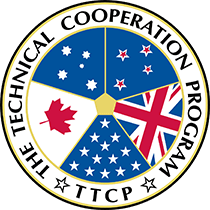Decision Lab’s Head of Technology and Innovation Damien Lopez is proud to announce his team’s participation in the fourth iteration of the TTCP CAGE Challenge (CC4), a cyber defence competition designed to develop autonomous agents capable of protecting computer networks.

Cyber Autonomy Gym for Experimentation (CAGE) Challenge 4 introduces a Multi-Agent Reinforcement Learning (MARL) scenario for the defence industry enterprise environment. Participants will develop agents to defend a network from cyber attacks, with a particular focus on the agents’ ability to adapt to different mission phases.
Decision Lab will leverage its successful DECIDE and DEMI capabilities developed within Fraser Nash’s Track 1 of the Advanced Research in Cyber Conflict Development (ARCD) program.
- Data-Efficient Cyber Investigation Determination and Evaluation (DECIDE) demonstrated the potential of AI to identify high-risk components in a network and evaluate the quality of agent training. This project established a tool (DECIDE) that complements existing risk prioritization approaches by providing unbiased assessments based on training data.
- Data Efficient Model Inference (DEMI) explored using world models to improve data efficiency in training cyber defence agents. This project successfully trained agents using 80% less data compared to traditional methods, highlighting the promise of world models for this purpose.
Developing MARL technology
Decision Lab is particularly excited about the large network and multi-agent nature of the CC4 challenge. This complex environment provides a valuable opportunity to push the boundaries of data-efficient MARL techniques. The team plans to leverage its expertise from the ARCD program, particularly the success of DECIDE and DEMI, to develop innovative agents. These agents will not only be adept at collaboration but will also demonstrate the ability to adapt and defend large-scale networks within a defence industry setting.
To achieve this, Decision Lab intends to combine MARL with model-based reinforcement learning (MBRL) techniques. This approach has the potential to significantly improve data efficiency, allowing the agents to learn effectively even with limited training data. By combining these techniques, Decision Lab aims to develop agents that can effectively collaborate, adapt, and defend complex networks in a resource-constrained environment.
A strong team
Participation in CC4 will further strengthen Decision Lab’s tech stack and its team’s capabilities. The challenge presents a unique opportunity to apply existing knowledge and tools in a demanding real-world scenario. By collaborating on complex problems, Decision Lab’s team will further its experience and develop understanding for application in future projects. This will allow them to develop even more effective solutions for cyber defence overall.
For further updates on Decision Lab’s progress in the TTCP CAGE 4 challenge, follow us on LinkedIn!

